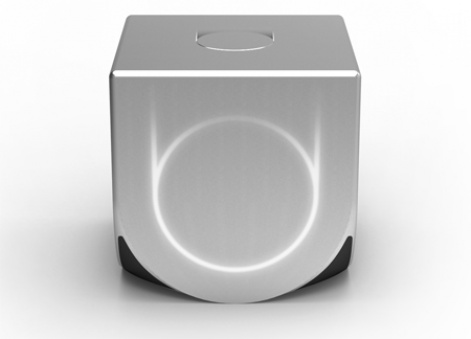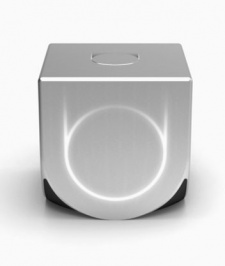Within the first two weeks, it has attracted over 42,000 backers, generated nearly $6 million in pledges, and boasts the best first day performance of any Kickstarter project to date.
With two weeks left before the project's August 9 deadline, Julie Urman and co. are guaranteed more than five times than the $950,000 they were originally asking for. Not bad going.
The facts speak for themselves: the demand for an affordable, Android-powered console is there - at least among independent developers.
Who wouldn't back a completely open platform without expensive development hardware, laborious QA procedures, tedious contract wranglings and technology lock-in?
Easy to port
For those already used to developing Android games, producing 'OUYA-optimised' versions of existing titles will be a relatively trivial exercise.
And such is the goodwill behind the system, those willing to develop launch exclusives for the system stand to benefit from the kind of mass exposure that have studios across the world scrambling to get involved.
With the box set for March 2013 release at a piddling $99, it's hard to imagine OUYA not being a resounding success at launch, either. Beyond that, though, its future is less assured.
Cheap, but not cheap enough?
For one thing, there's the issue of price.
While $99 sounds like a decent price for a gaming system, it won't exactly be alone at the cheaper end of the market, with the price of all the current generation systems likely to be slashed to make way for the next generation systems.
And each and every one of those (much more powerful) systems benefits from a vast library of excellent blockbuster titles - all being sold off at pocket money prices.
One of the key 'hooks' of OUYA is that it's brings Android-powered games to the TV, but is that really such a big deal? As many people have pointed out, many of its intended audience can already do this with their smartphones or tablets if they really want to.
In its favour, the bespoke OUYA joypad will ensure that certain genres will benefit enormously (notably twin stick shooters and action adventures), but on the other hand it also ensures that many games styles that favour touch/tilt controls suddenly become a ballache to control with a pad.
Do a Nintendo
The only way around this is to 'do a Nintendo' and launch the OUYA with a hybrid Wii U-style touchscreen control pad - but clearly that's never going to happen at $99.
One simple solution to this issue is if the OUYA also supports smartphones and tablets as controllers if and when required, but if it's designed to operate purely via the joypad, it creates as many problems as it solves.
Another fly in the ointment for OUYA is the vast amount of competition it's just about to encounter in the Smart TV space.
With Samsung, Sony, LG and Panasonic already playing their hands, and Apple almost certainly plotting something, it won't be long before every half decent television essentially has a game-ready system built into it.
Given that most of these are Android-powered already, it starts to undermine OUYA's appeal in the eyes of consumers. Why would they bother buying an extra box when they already have a perfectly capable smartphone/tablet/console system anyway?
Creativity comes first
For those of us drawn to downloading creative indie games, OUYA represents an exciting alternative.
It's a chance for creativity to come first, and an opportunity for developers to smash all the bothersome corporate boundaries than inevitably get in the way of producing great games. All this! On your TV! For hardly any money! Woo!
But for the typical consumer drawn to big brands and more of the same, they just won't care enough to get involved - and with persistent rumours of a 'Steam Box', a slick cloud-based system packed with killer blockbuster brands and indie gems could kill OUYA stone dead in a heartbeat.
Those on the geekier end of the spectrum will undoubtedly love it, though.
The ability to tinker around with it, and hack it into oblivion make it enormously attractive as an all-round media powerhouse. Hobbyists and retro gamers, especially, may as well get it over with and get down on one knee right now.
For developers, the open nature of the system could make it a nightmare to monetise if piracy is, indeed, a given. Literally the only way it can succeed as a commercial platform is if it's secure - not only for transactions, but for user profiles and leaderboards, and online play.
You don't need to be Microsoft to understand that this is an expensive area to police.
Discoverability problems
And let's say that OUYA does get off to a good start, and 200 titles appear within the first few months.
Like every other digital download platform on the market, discoverability very quickly becomes an issue. Who curates the content? How will the cream rise to the top?
Ultimately, the success of OUYA largely relies on developers bothering to make enough great games exclusively for it - or at least optimising existing ones and adding Ouya-specific features. But much like the Xperia Play, what we'll most likely end up with is a rather half-hearted run of familiar names with limited added value.
Will I be buying one? As an industry professional, of course.
There's every reason to get behind an open gaming platform that gives creativity a chance, but I can't help but feel that by 2013 it will be just one of many hardware platforms competing for my already limited viewing time.






















